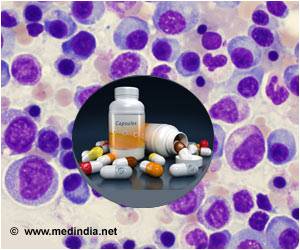Early results from an experimental skin cancer vaccination are promising
- Moderna and Merck reported the development of a medication combination to treat melanoma recurrence, a lethal skin cancer
- The researchers also discovered a relationship between a higher proportion of Y chromosome deletion and poor lung function //
- Loss of Y chromosomes could be utilized as a biomarker to determine which patients are at risk of developing severe COVID-19 disease
mRNA Therapy for Cancer Patients
The candidate, known as mRNA-4157/V940, is a personalized mRNA therapy that is tailored to a patient’s tumor neoantigens. The strategy is a departure from the cancer vaccinations that failed in the 2010s. Companies hope to improve results by studying a patient’s tumor, finding mRNA that can stimulate an immune response, and encasing the molecules in lipid nanoparticles.Merck and Moderna have provided clinical data indicating that the strategy is effective. The open-label phase 2b trial enrolled 157 patients with stage 3 or 4 melanoma to receive either mRNA-4157 and Keytruda or the checkpoint inhibitor alone following complete surgical resection.
When compared to Keytruda alone, adding mRNA-4157 lowered the risk of recurrence or mortality by 44%. The discovery, hailed by the researchers as the first demonstration of efficacy for an mRNA cancer treatment in a randomized clinical trial, paved the way for the study to advance to phase 3 and expand into additional tumors.
In a trial, patients who received the combo had a 44% lower risk of recurrence or death compared to those who just received Keytruda.
“Today’s results are quite encouraging for the field of cancer treatment; mRNA has proven transformative for COVID-19, and now, for the first time, we have demonstrated the potential for mRNA to influence outcomes in a randomized clinical trial in melanoma,” Moderna CEO Stéphane Bancel said in a press release.
“The study is the first randomized trial to show that combining mRNA vaccination technology with a medication that boosts the immune response may offer a better outcome for melanoma patients and possibly other cancers,” Reuters reports. According to the Wall Street Journal, the businesses will conduct more research next year to further validate the combination’s safety and efficacy. “Successful study results could pave the road for possible regulatory approval of Moderna’s experimental cancer vaccine,” the Journal noted.
The new study studied 157 melanoma patients in stages III and IV. Their malignancies were surgically removed before receiving treatment with either the combo or only Keytruda.
It can be concluded that, in addition to the numerous benefits of mRNA vaccines for cancer treatment, their use is fraught with complications. As a result, extensive knowledge of mRNA vaccines is required before they can be used to treat cancer, as is a large number of experiments before this vaccine for preventing recurrence of multiple myeloma is released to the public.
Source-Medindia














